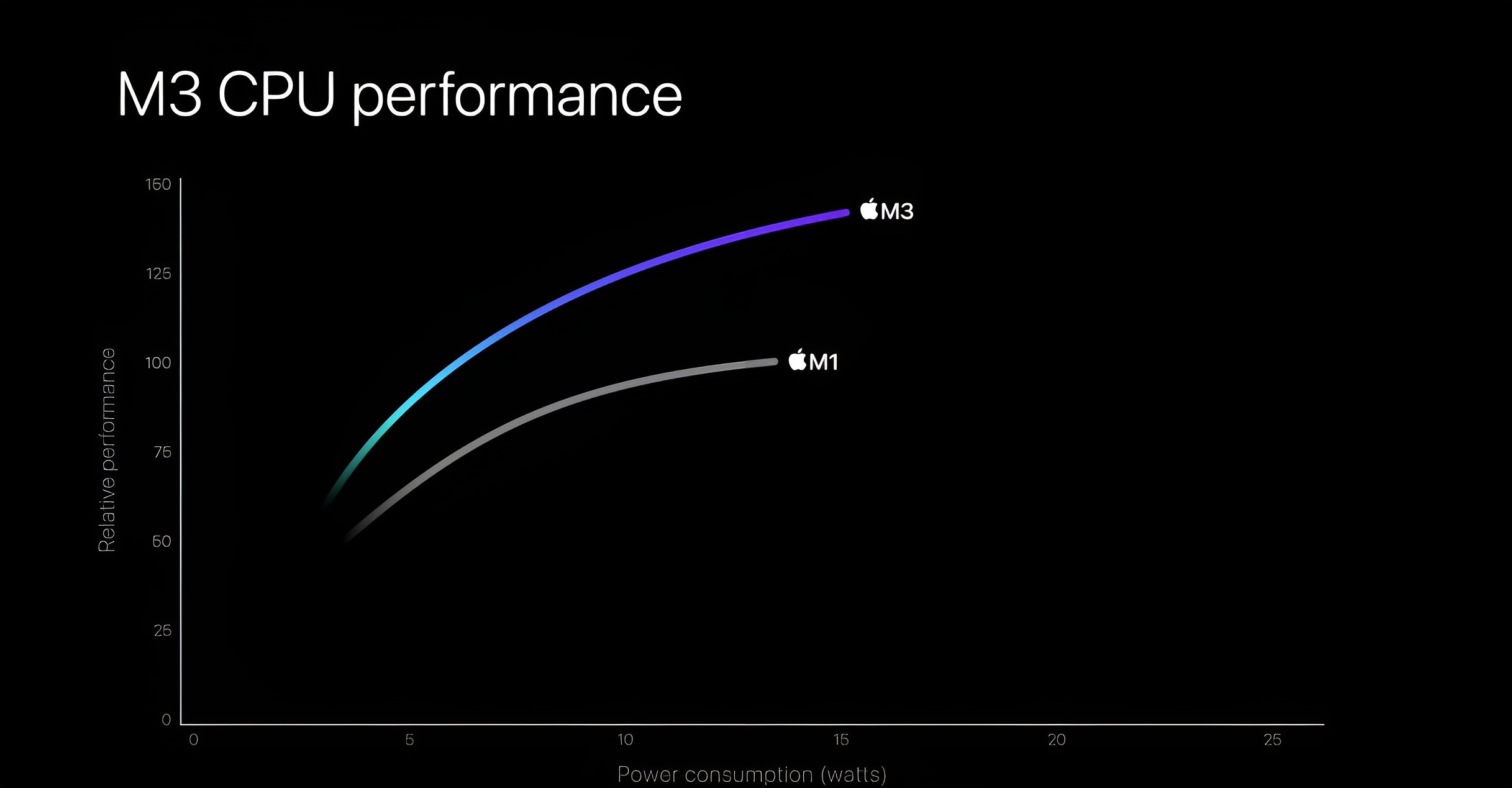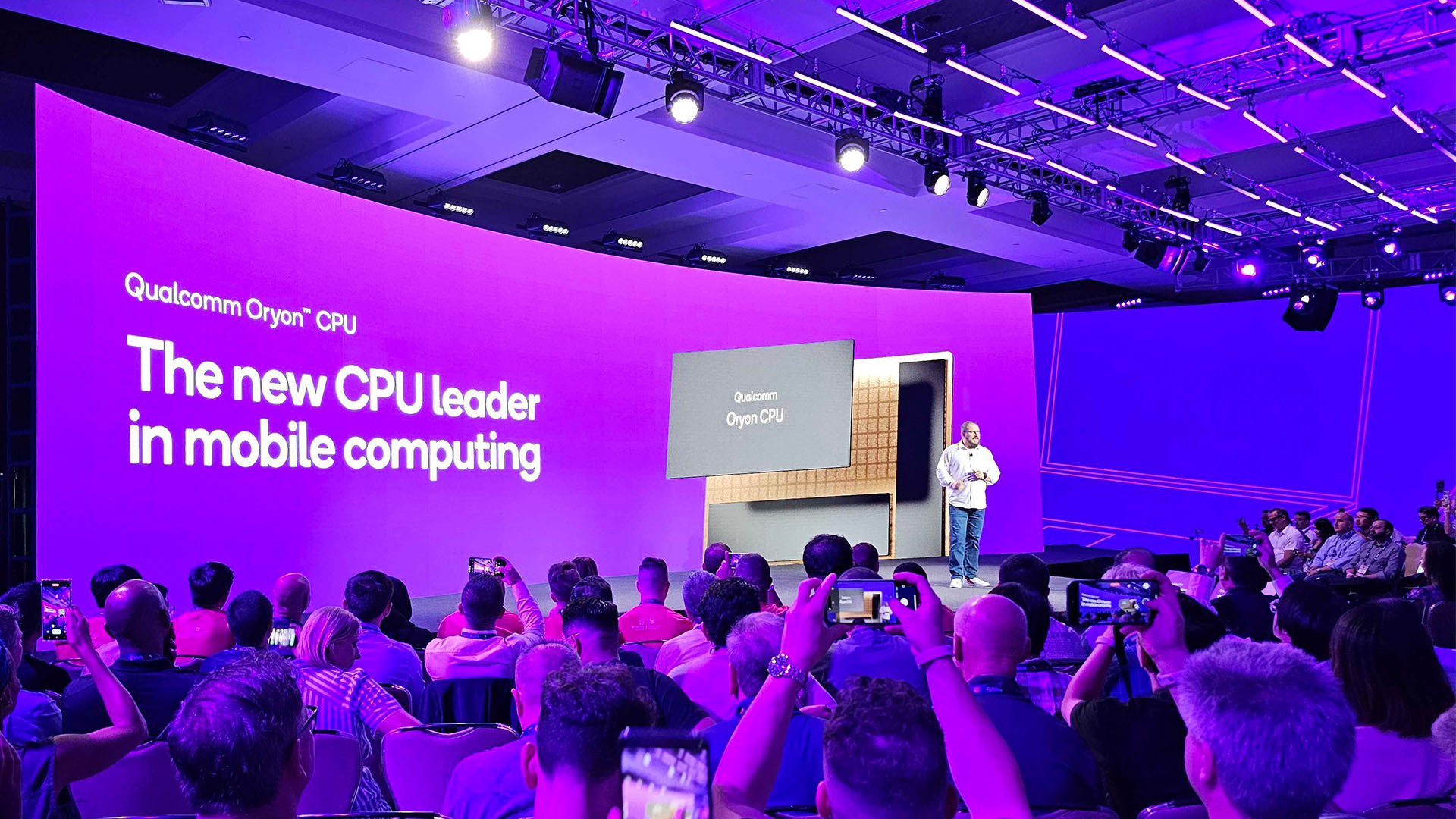Just last week, Qualcomm debuted its all-new Snapdragon X Elite, the new hotness for ARM-powered Windows laptops. We were blown away. I’ve already said that I’m more excited for the future of laptops than in years. But the elephant in the room was Apple, due to announce its latest M3 chips, which has now happened.
Why does this matter at all? Apple is the benchmark for what ARM-based computers can achieve right now. Its platform is mature, and any bias aside, it’s phenomenal. Nobody can deny that. Windows on ARM laptops have been lackluster in comparison, but the Oryon CPU-based Snapdragon X Elite will change that, and Apple is currently the best yardstick we have.
At least, in theory. Where Qualcomm was stacking its claims against the Apple M2, Apple stacked its claims against the M1 and, bizarrely, a now four-year-old Intel MacBook Pro. There are reasons you could argue this would be useful, but it’s absolutely crazy to ignore any gains over your previous generation hardware when showing off your new wares.
It also leaves us trying to decipher where the Snapdragon X Elite may sit against its actual competition when it launches. Remember that scene in The Hangover where Alan plays Blackjack with equations flying around his head? That’s me this morning after the Apple event.
The Apple M2 is completely MIA

What kind of company announces a new chip without comparing its performance to its direct predecessor? Can you imagine the flaming that Intel would have pretending the 13th Gen didn’t exist when revealing the 14th Gen?
Likewise, for AMD with Ryzen CPUs, and hell, NVIDIA wouldn’t dream of not telling us why its latest GPUs are a bazillion percent better than its previous one.
We always love having a giggle at Apple’s graphs, and this event was absolutely no exception. I mean, look at this beauty:

Where’s the M2?! You could argue, as I’m sure at least one Apple fan somewhere will, that folks are more likely to upgrade from an M1 to an M3. That’s fair. But in what universe do people not also want to see where the previous generation chip sits on that graph that doesn’t really tell us much as it is?
For us, though, it also makes deciphering where the M3 and Snapdragon X Elite may compare to each other. Qualcomm stated, and subsequently backed up with a benchmarking session, that the Snapdragon X Elite offers 50% better multi-threaded performance than the Apple M2. Not only that, but it uses up to 30% less power than the M2.
Our Editor-in-Chief, Daniel Rubino, was at the Qualcomm event and has seen the Snapdragon X Elite in action. And has as many questions as the rest of us.
“The base M3 includes an eight-core CPU with four performance cores and four efficiency cores, and Apple claims it’s up to 35 percent faster than the M1 for CPU performance.”I take it it’s slower than the Snapdragon X Elite because the X Elite is 50% faster than the M2… pic.twitter.com/CGxZ3Yz5t2October 31, 2023
But it’s OK, you guys. The new MacBook Pro is ELEVEN TIMES FASTER than the fastest Intel-powered MacBook Pro, that’s about four years old at this point. So that’s helpful.
Apple will always only do what makes Apple look best on in-house graphs. But even then, this was a bit of a fiasco.
Snapdragon X Elite is looking good against M3… we think(?)

Since whatever laptops that run the Snapdragon X Elite will be hitting the market in mid-2024, the Apple M3 will be the comparison. Right now, we have some numbers from Qualcomm and the company’s reference hardware. Soon, we’ll have real-world figures from Apple M3 laptops as well.
The important thing is that it looks as though Qualcomm has done so much with its first Oryon-based CPU that it will at least keep up and likely even surpass in areas, which isn’t a bad attempt.
For those not inclined to drink the Kool-Aid and buy a Mac, ARM computing is a very real future and a very real future where the compromises are shrinking every day. We don’t really know how good Qualcomm’s latest is going to fare compared to the M3, but we’ll start to get an idea soon enough. More details on those graphs would have helped, though.




